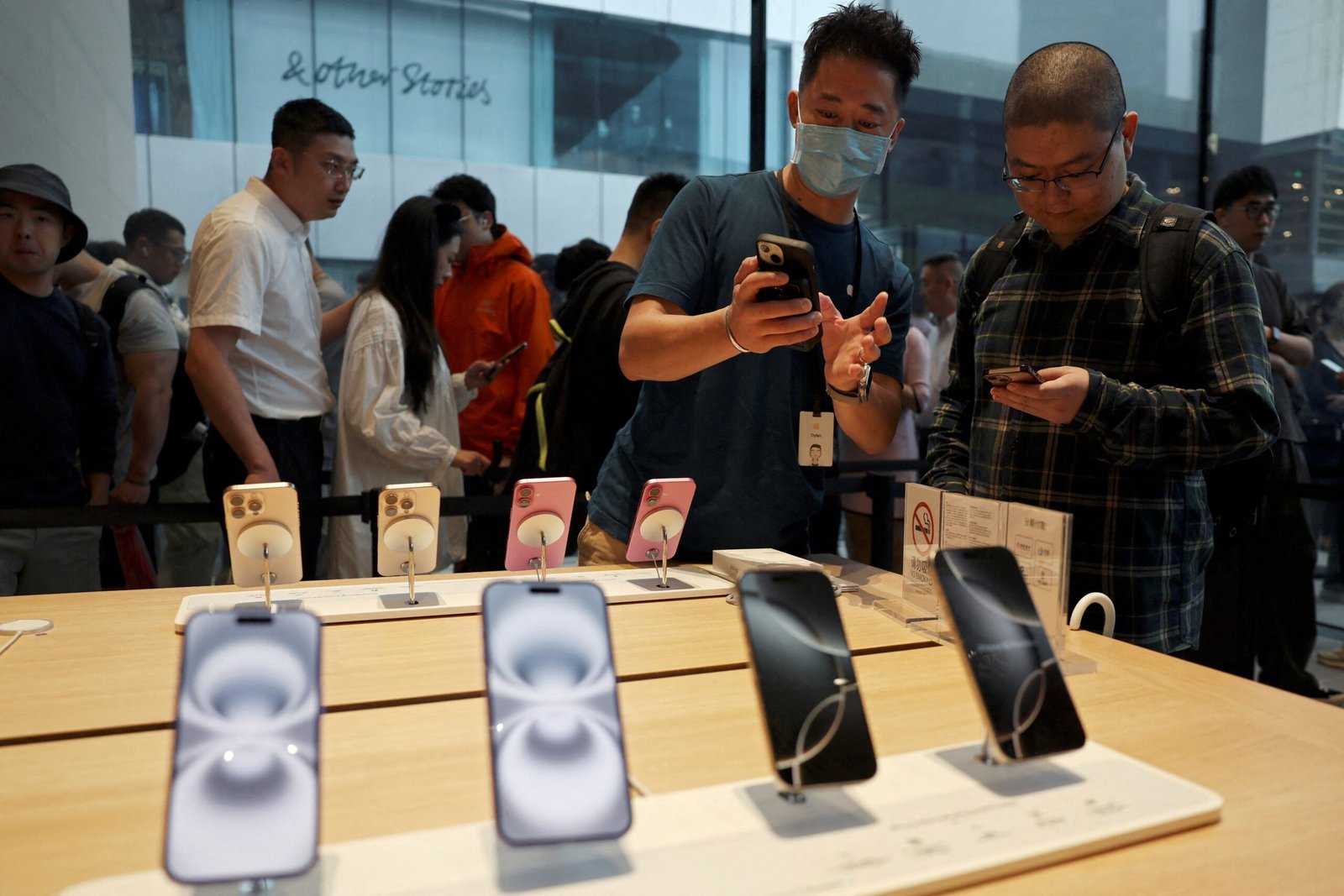Apple is making a high-stakes move to regain ground in China by partnering with Alibaba to bring AI-powered features to iPhones. This comes after months of declining sales and market share losses to domestic giants like Huawei, whose smartphones have been packed with AI tools since last year.
Reports indicate that Apple initially chose Baidu as its AI partner, but after failing to meet expectations, it turned to Alibaba’s advanced AI models. Now, Apple and Alibaba have submitted their AI tools for approval by Chinese regulators, setting the stage for a potential breakthrough—or a major setback.
Apple’s Desperate Race to Stay Relevant in China
China has long been one of Apple’s most important markets, but the rise of homegrown AI-powered smartphones is putting serious pressure on the tech giant. Here’s why Apple is in trouble:
- Huawei’s AI-driven devices have been dominating the premium segment, eating into Apple’s market share.
- Chinese consumers expect cutting-edge AI features, something Apple has struggled to deliver.
- iPhone sales in China plummeted during the holiday quarter due to a lack of AI-powered functionalities.
- Regulatory challenges have made it difficult for Apple to implement global AI solutions in China.
This partnership with Alibaba is Apple’s biggest bet yet to turn things around. But will it work?
Shanghai Developer Accelerator: Apple’s AI Launchpad in China
Apple’s Shanghai Developer Accelerator, opened in July 2019, is playing a key role in this AI push. This facility is designed to:
- Support local AI innovation for iOS devices
- Work with Chinese developers and tech companies to integrate AI solutions
- Serve as a base for Apple’s AI expansion in China
Apple is set to host a major event in Shanghai on March 25, titled “Harnessing the Power of Apple Intelligence.” The timing suggests that Apple is preparing to launch its China-specific AI features, though it remains uncertain if the Alibaba-backed AI tools will be ready in time.
Why Apple Dumped Baidu and DeepSeek for Alibaba
Apple’s AI partnership in China has been anything but smooth. Initially, Apple had chosen Baidu as its primary AI partner, but according to reports, Baidu’s models did not meet Apple’s high standards.
Apple then explored other options, including:
- Tencent – A tech giant with strong AI capabilities, but Apple wanted more independence.
- ByteDance (TikTok’s parent company) – Considered, but Apple hesitated due to concerns over government scrutiny.
- DeepSeek – Rejected due to a lack of resources and experience to handle Apple’s AI needs.
Ultimately, Alibaba emerged as the best choice, with its proven AI infrastructure, experience in large-scale cloud computing, and strong government ties—which could help Apple navigate China’s strict AI regulations.
What AI Features Could Apple Bring to Chinese iPhones?
Apple is expected to introduce AI-driven features tailored specifically for the Chinese market. Possible upgrades include:
- AI-powered Siri – A more natural, responsive, and context-aware voice assistant.
- Advanced AI photography tools – Features similar to Huawei’s AI-enhanced image processing and real-time editing tools.
- AI-driven personalization – Smart recommendations for apps, shopping, and daily tasks based on user behavior.
- Enhanced AI search and automation – Integrating AI into iOS to manage notifications, emails, and schedules.
- Localized AI translations – Alibaba’s expertise in Chinese-language AI models could significantly improve Siri’s local performance.
These features could help Apple compete with Huawei’s AI-first approach and appeal to Chinese consumers who prioritize AI-powered experiences.
China’s Strict AI Regulations: Will Apple Get the Green Light?
One of Apple’s biggest challenges is getting regulatory approval from the Cyberspace Administration of China (CAC). The Chinese government has tight control over AI models, requiring them to comply with strict security, censorship, and national policy guidelines.
By partnering with Alibaba, Apple may have increased its chances of approval, since Alibaba’s AI models have already been vetted and cleared for use in China. However, nothing is guaranteed, and a rejection could spell disaster for Apple’s China strategy.
The High-Stakes AI Battle: Apple vs. Huawei
Huawei has been dominating China’s AI smartphone market, and Apple’s new AI push is an attempt to level the playing field. But can Apple catch up?
Apple vs. Huawei: AI Features Compared
| Feature | Apple (with Alibaba) | Huawei (HarmonyOS AI) |
|---|---|---|
| AI Voice Assistant | Upgraded Siri with Alibaba’s AI | Celia (Huawei’s AI assistant) |
| AI Camera Tech | AI-enhanced image processing | AI Super Zoom, AI-enhanced Night Mode |
| AI-Powered OS | AI-driven iOS personalization | HarmonyOS AI adapts to user behavior |
| Smart AI Features | AI-powered automation for emails, messaging, and tasks | AI-driven notifications, scheduling, and smart interactions |
Huawei’s head start in AI development means Apple needs to deliver game-changing AI features—or risk falling even further behind.
March 25: The Make-or-Break Moment for Apple’s AI in China
Apple’s AI launch event in Shanghai on March 25 could be a defining moment. Here’s what could happen:
- If Apple gets regulatory approval in time, it could launch AI-powered iPhones in China, giving it a much-needed boost against Huawei.
- If Alibaba’s AI tools aren’t ready, Apple risks another delay, pushing Chinese consumers even further toward domestic brands.
- If China rejects Apple’s AI models, it could be a major setback, forcing Apple to rethink its China strategy entirely.
Final Thoughts: Can Apple’s Alibaba Deal Save Its Future in China?
Apple’s partnership with Alibaba is a bold and necessary move, but success is not guaranteed. The AI race in China is moving at breakneck speed, and Apple must deliver fast—or risk being overtaken by its competitors.
With Huawei already dominating the AI space, Apple’s ability to launch powerful AI features and gain regulatory approval will determine whether it can stay in the game—or fade into irrelevance in China’s smartphone market.

